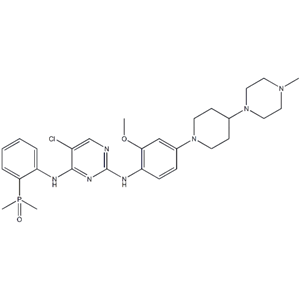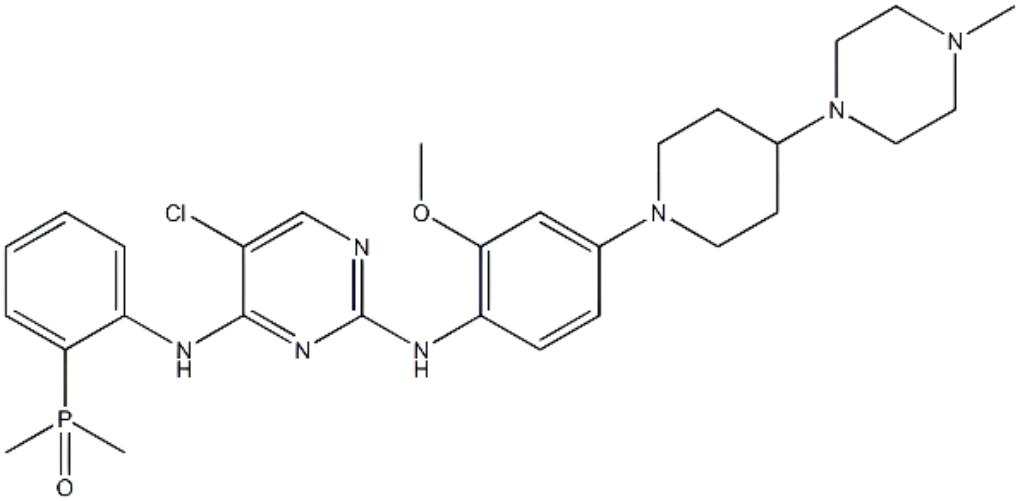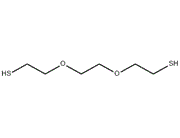| General Description | Brigatinib (AP26113) is a medicine used to treat cancer that suppresses epidermal growth factor receptor (EGFR) and anaplastic lymphoma kinase (ALK). Brigatinib is a selective agonist against variations of EGFR as opposed to the wild mutant forms. The drug also illustrates selectivity against the ALK-EML4 fusion gene, which is a fundamental aspect of the modification of susceptible lung parenchyma. Brigatinib is prescribed for patients with specific abnormal genes and when the non-small cell lung cancer (NSCLC) is non-responsive to management with other medications. Brigatinib is classified as a kinase inhibitor, whose mechanism of action entails suppressing the action of abnormal proteins that enhance the multiplication of cancer cells. |
| Indications | Brigatinib is prescribed for patients with specific forms of NSCLC that have spread to various sections of the body in people who have been on previous treatment with other cancer medications such as crizotinib, and their condition has become worse or they indicate minimal signs of improvement. |
| Dosage | Brigatinib is available in 30mg, 90mg, and 180mg tablets. For the treatment of NSCLC for patients who are intolerant to crizotinib or those whose condition has progressed, 90mg should be taken orally 2 times per day for 7 days and if the drug is well-tolerated the dosage indication can be increased to 180 mg PO qDay.
A patient should continue treatment with the drug until disease progression or when it results in unacceptable toxicity.
For coadministration with other CYP3A inhibitors, the Brigatinib dosage should be reduced by 50%, for example, from 90mg to 60mg. After discontinuation of treatment with potent CYP3A inhibitors, the patient can resume their initial dosage indications for Brigatinib especially if it was well tolerated.
Brigatinib can be taken with or without food. If a patient misses their doses for ≥14, they can resume treatment at 90mg taken as a single daily dose for 7days. The dosage may also increase to previously well-tolerated levels. |
| Pharmacodynamics | Brigatinib suppresses in vitro viability and proliferation of cells which indicate the EML4-ALK protein fusion and 17 crizotinib-resistant ALK variations. The drug action spreads to cells illustrating EGFR deletions, FLT3-D835Y, FLT3-F691L and ROS1-L2026M. Brigatinib encapsulates a dose-dependent obstruction of tumor burden, tumor growth and prolonged survival. |
| Mechanism of Action | Brigatinib is a tyrosine kinase suppressor with activity against specific kinases such as ROS1, ALK, point mutations, EGFR deletions, and insulin-like development factor 1 receptor. The drug acts by suppressing the operation of downstream indicating proteins and ALK phosphorylation. |
| Absorption | The administration of the drug at 90mg creates an AUC of 8165 ng h/ml and a Cmax of 553 ng/ml, whereas 180 mg generates an AUC of 20276 ng h/ml and a Cmax of 142 ng/mg. The oral administration of the drug presents a Tmax that ranges from 1 to 4 hours. The consumption of a high-fat meal decreases Cmax by 13% as opposed to overnight fasting without affecting the AUC. |
| Route of Elimination | 65% of the Brigatinib is eliminated in feces whereas 25% is eliminated through urine. The unchanged form of the drug is represented by 86% in urine and 41% in feces. |
| Interactions | Brigatinib may interact with grapefruit and grapefruit juice, and it may result in unpleasant side effects. A patient should also refrain from using grapefruit products while on treatment with this drug. |
| Precautions | One should not take this medicine if they are hypersensitive to it. To enhance safety while on treatment with Brigatinib, one should notify their doctor if they have vision problems, pancreas problems, glucose intolerance/diabetes, slow heartbeats, breathing problems or lung disease, and high blood pressure.
Brigatinib can harm a developing fetus hence one should use an appropriate form of birth control while on this medication to prevent pregnancy while on treatment. This drug may result in birth defects. |
| Side Effects | Brigatinib may cause several side effects that may go away after some time whereas some may persist. Some of the symptoms may include difficulty in falling/staying asleep, reduced appetite, back/joint pain, numbness, burning, tingling, or pain on the hands/feet, headache, nausea, skin rash, tiredness, constipation, vomiting, and diarrhea.
Adverse reactions associated with the administration of Brigatinib may include muscle pain, weakness, tenderness or spasms, irregular or slow heartbeat, pain on the upper section of the stomach that may worsen after consumption of a meal, weight loss, intense thirst, frequent urination, intense hunger, weakness or blurred vision, seeing small specks/floaters, light resulting in pain on one’s eyes, seeing light flashes, fruity breath odor double/blurred vision, feeling faint, lightheadedness, dizziness or a headache, nosebleeds, fever, coughs, chest pain, breathing difficulties or shortness of breath. The drug may result in other side effects hence a patient should consult their doctor if they experience other symptoms while on treatment with Brigatinib. |
| Description | Brigatinib is a small molecule inhibitor of both ALK and EGFR [195]. In pre�clinical models, “triple-mutant EGFR”-positive cells (activating EGFR mutation/ T790M/C797S) responded to the combination of brigatinib with an anti-EGFR monoclonal antibody, cetuximab or panitumumab [196]. Single-agent activity of brigatinib in a phase I/II trial was only 5% [197], possibly compounded by low plasma concentrations [196], but the addition of an anti-EGFR monoclonal anti�body remains to be clinically tested. The preclinical data with brigatinib and EAI045?in laboratory models with a C797S mutation demonstrate that combination therapies with an anti-EGFR monoclonal antibody may lead to overcoming resis�tance to osimertinib. |
| Uses | Brigatinib is a tyrosine kinase receptor Mer (MERTK) inhibitor and can be used in combination with epidermal growth factor receptor (EGFR) inhibitors for the treatment of cancer. |

 China
China



